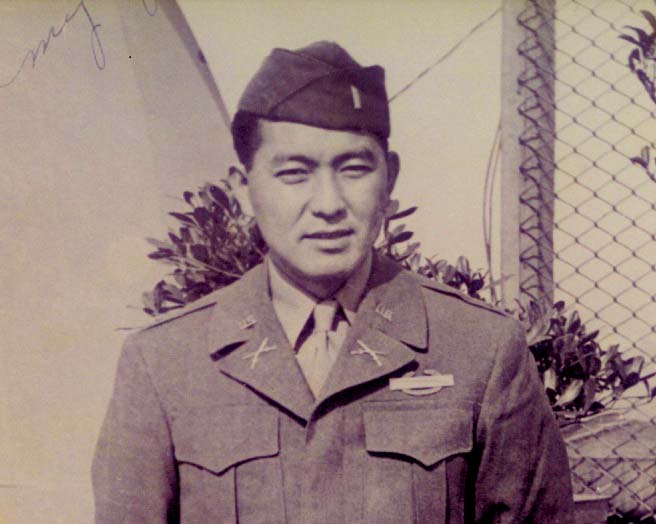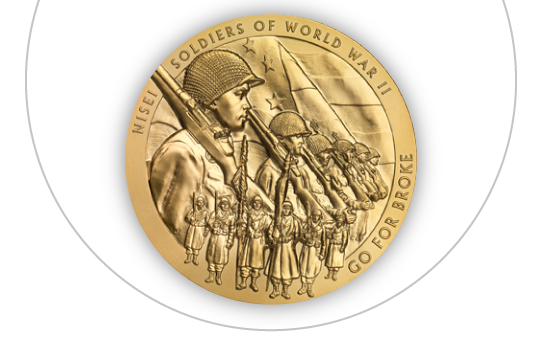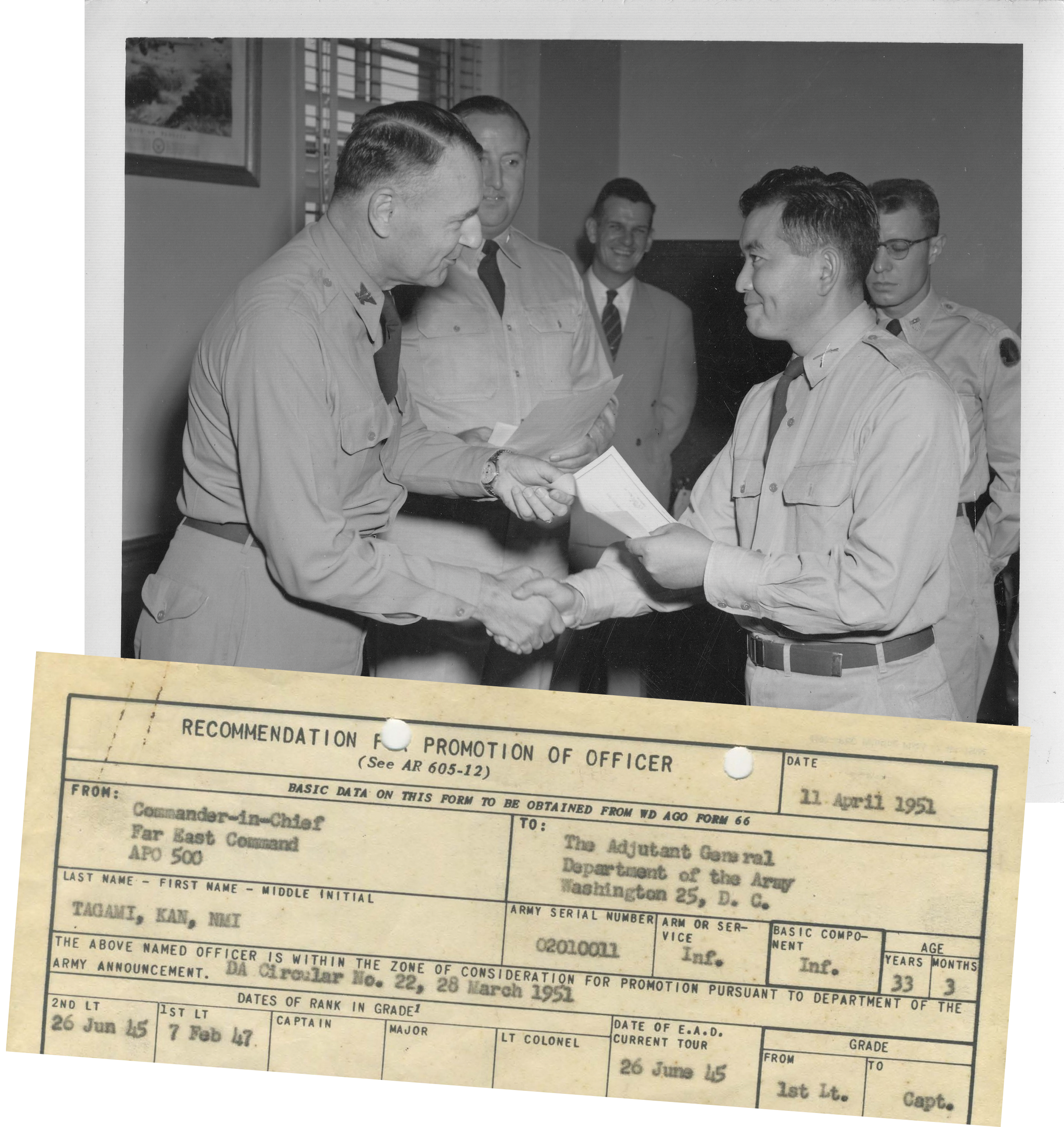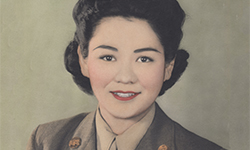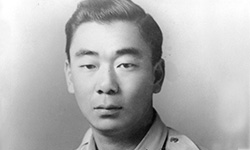Major
Kan Tagami
Military Intelligence Service
1918 - 2005
- Citizenship
- Courage
- Patriotism
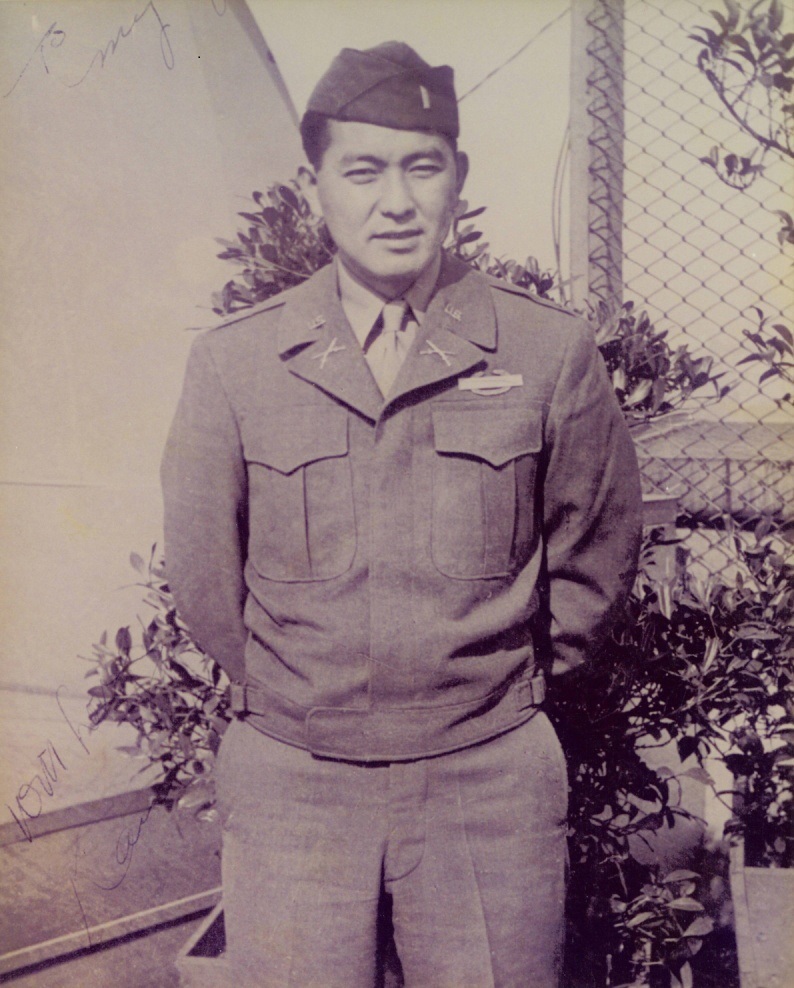
Early Life and Military Service
Kan’s remarkable life was almost predestined from childhood. He was born in the US; his parents were from Japan. His father, Sengoro, always told him, “Loyalty is where you are born.”
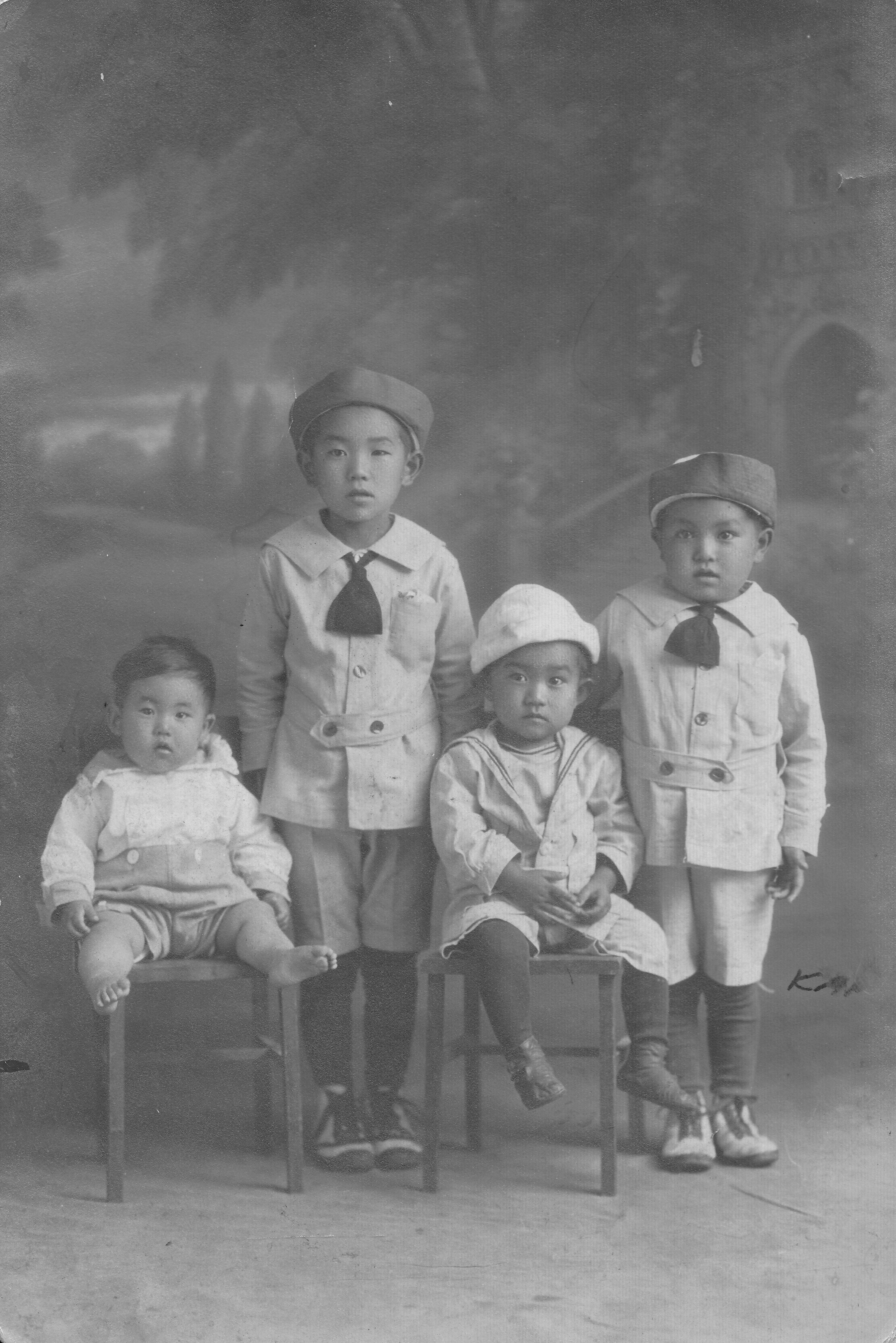
Kan, right, with three of his four siblings
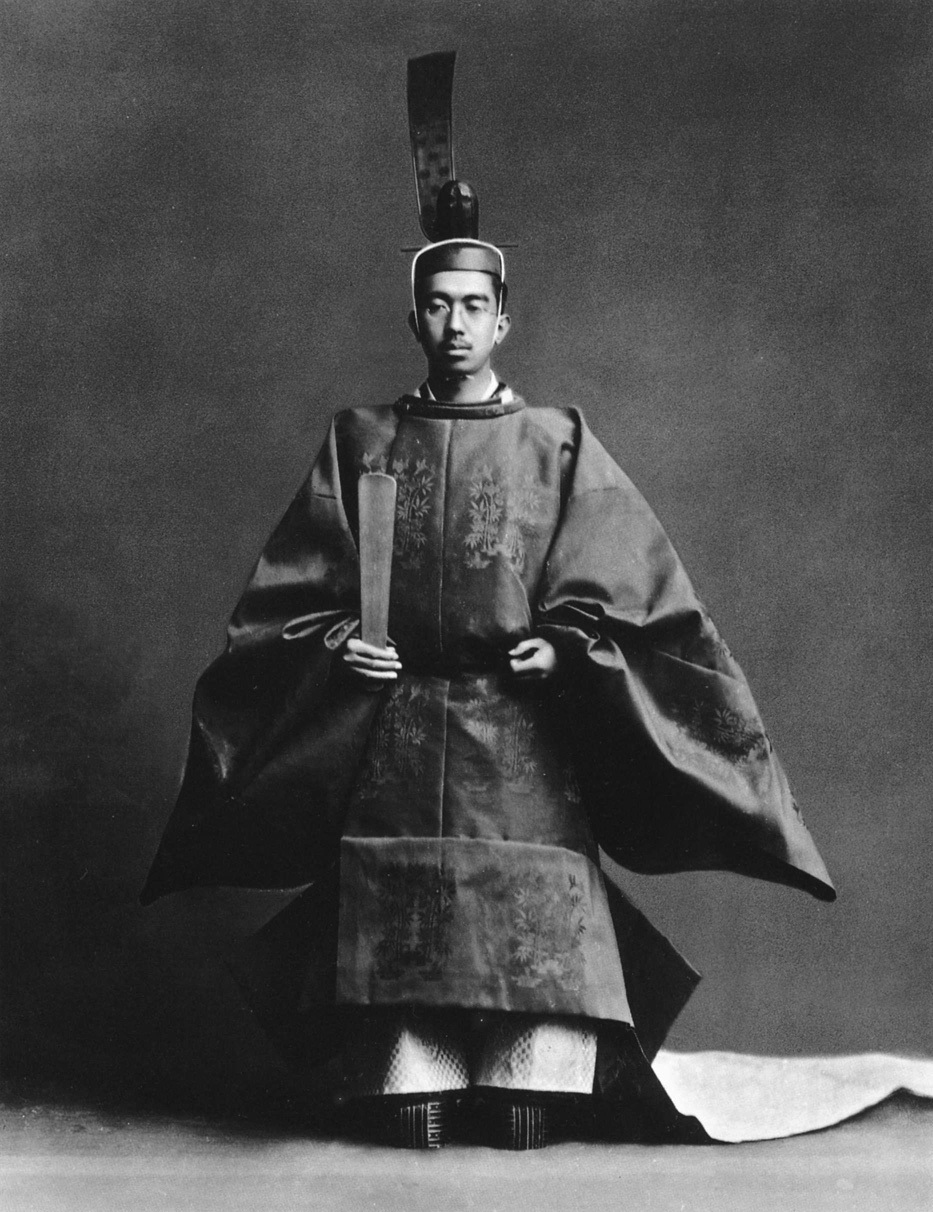
Emperor Hirohito after his enthronement ceremony in 1928
While his American patriotism never wavered, Kan was sent to Japan at age 10 to learn his ancestral language and culture. While in Hiroshima, his class went to the train station to greet Prince Hirohito. Kan was instructed not to look directly at the revered leader, but he sneaked a peek.
Decades later, Kan would be the first American soldier to have a private face-to-face meeting with Emperor Hirohito.
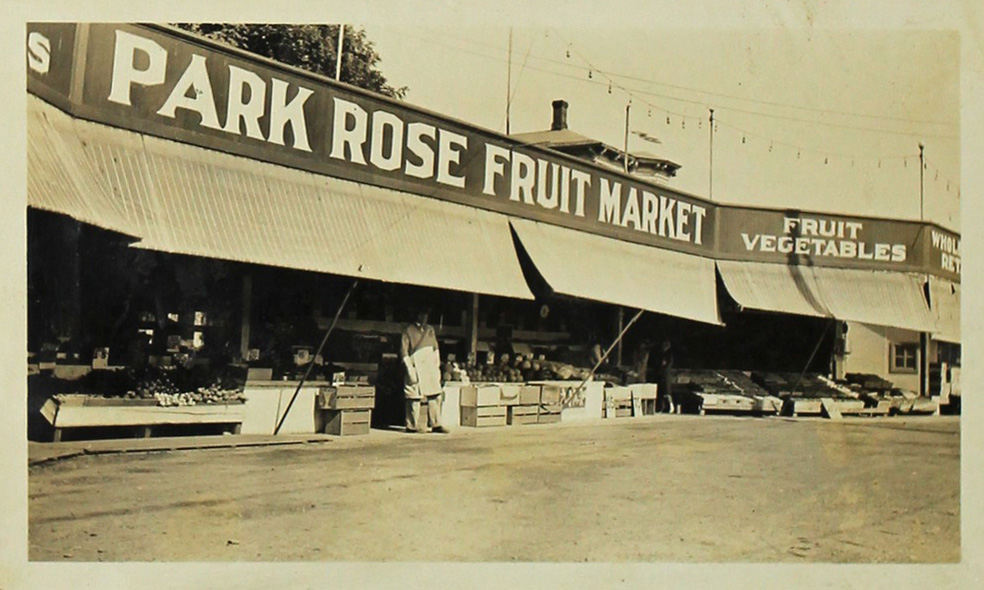
Jobs at fruit stands like this were some of the few opportunities for Japanese Americans before the war.
Kan returned to California and while facing problems readjusting to English, he graduated from high school. He went on to get his bachelor’s degree from the University of Maryland. In spite of this great accomplishment, the best job he could get was working at a fruit stand.
Kan was drafted into the US Army in February 1941. Japan’s bombing of Pearl Harbor on December 7, 1941 led to the US’s official entry into World War II.
Because he was of Japanese ancestry, Kan was transferred away from the West Coast and ordered not to carry any weapons. His family was incarcerated in Gila River concentration camp. He made a formal request to visit them but was told that it would be too "dangerous.”
Here I’m in uniform and doing what I’m supposed to be doing and they take my family. . . the others were just as American as I was. They were thrown in behind barbed wire, I kinda felt that, ‘What the hell is going on?’ |Kan Tagami
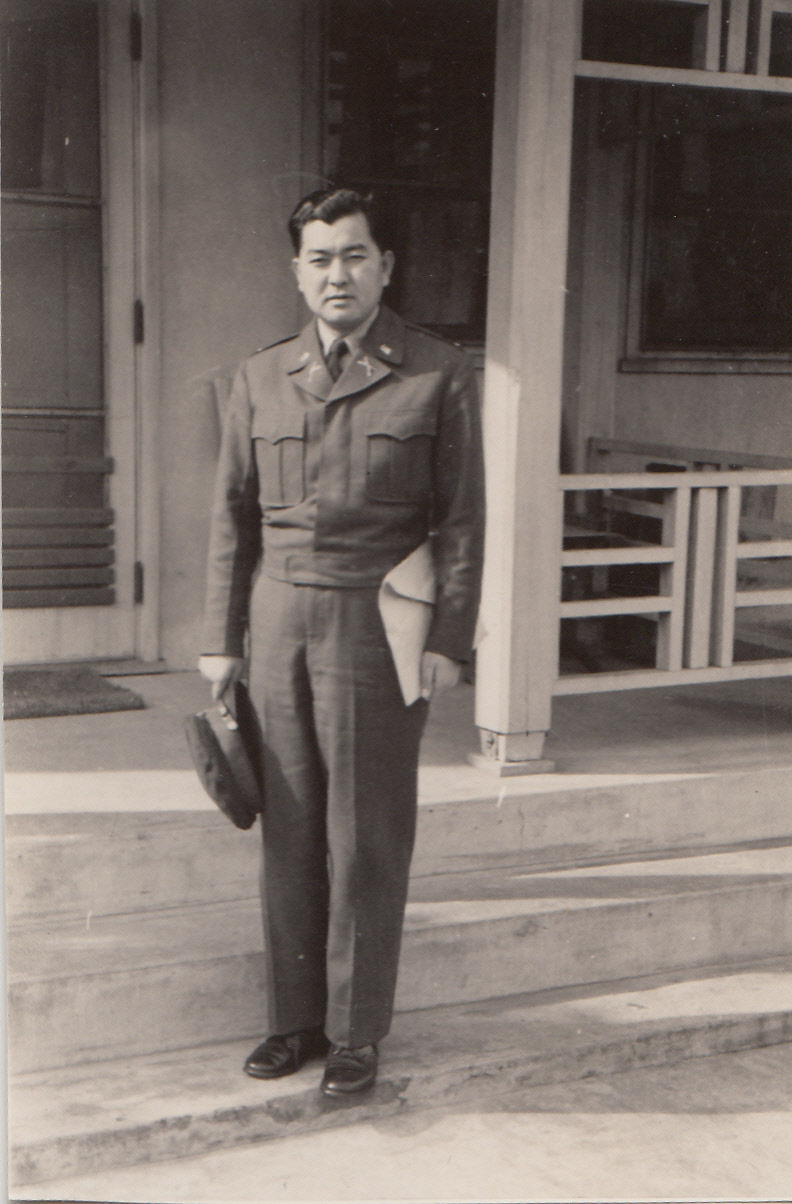
Kan Tagami in uniform
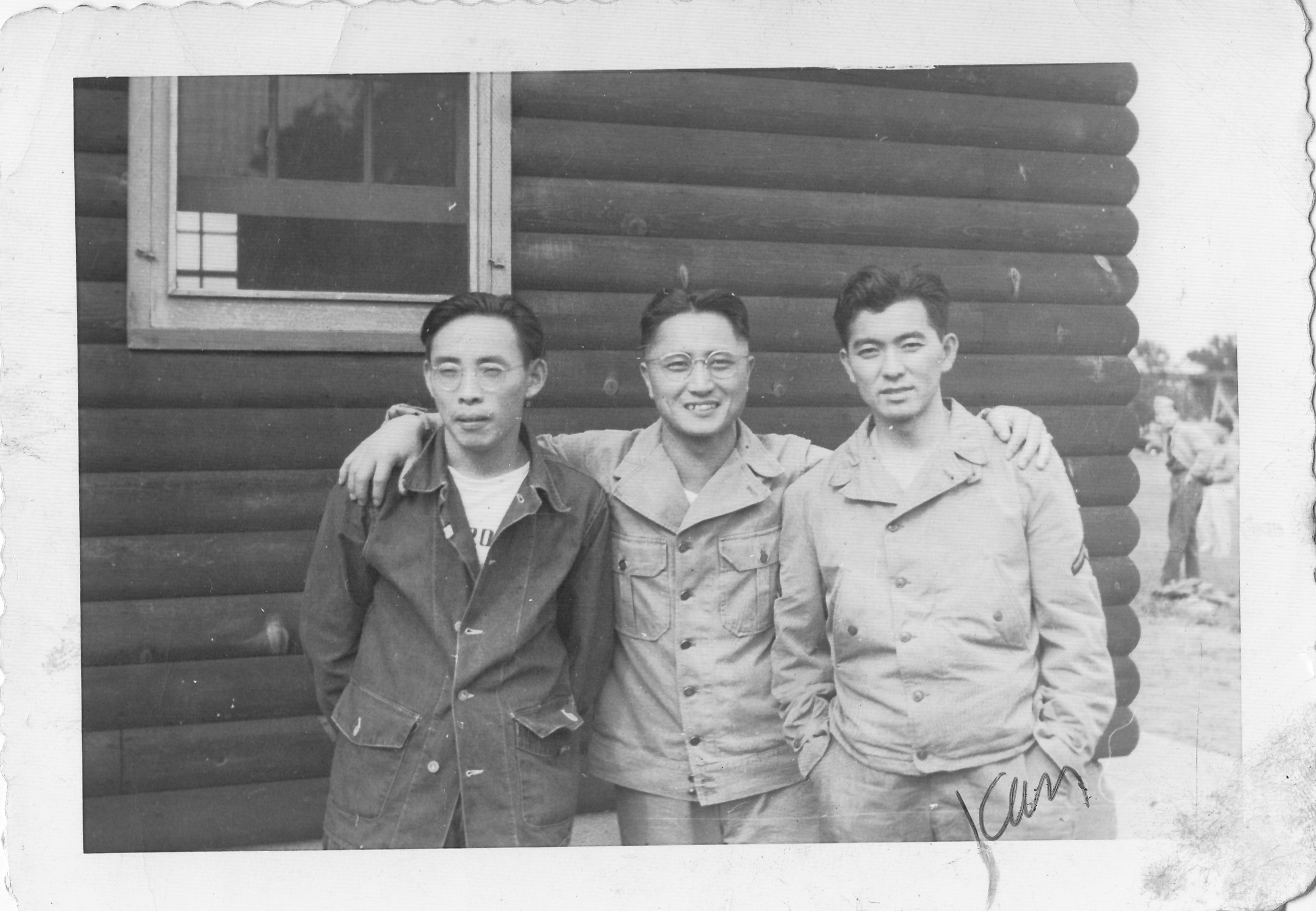
Kan with two fellow soldiers at Camp Savage, Minnesota
In 1942, Kan became part of the first class of Military Intelligence Service Language School in Camp Savage, Minnesota. Because of his proficiency in the Japanese language, he was elevated to instructor and taught other Nisei soldiers until 1944.
Serving in China, Burma, and India
In July 1944, Kan left the safety of Minnesota to volunteer for an assignment to reopen the Burma Road. Before being cut off by Japan, the Burma Road had been a very important supply route to China.
Kan led a 15-man language detachment, the 124th Cavalry Regiment, under the MARS Task Force. They replaced the well-known jungle warfare unit, Merrill’s Marauders, now depleted in numbers due to intense fighting.
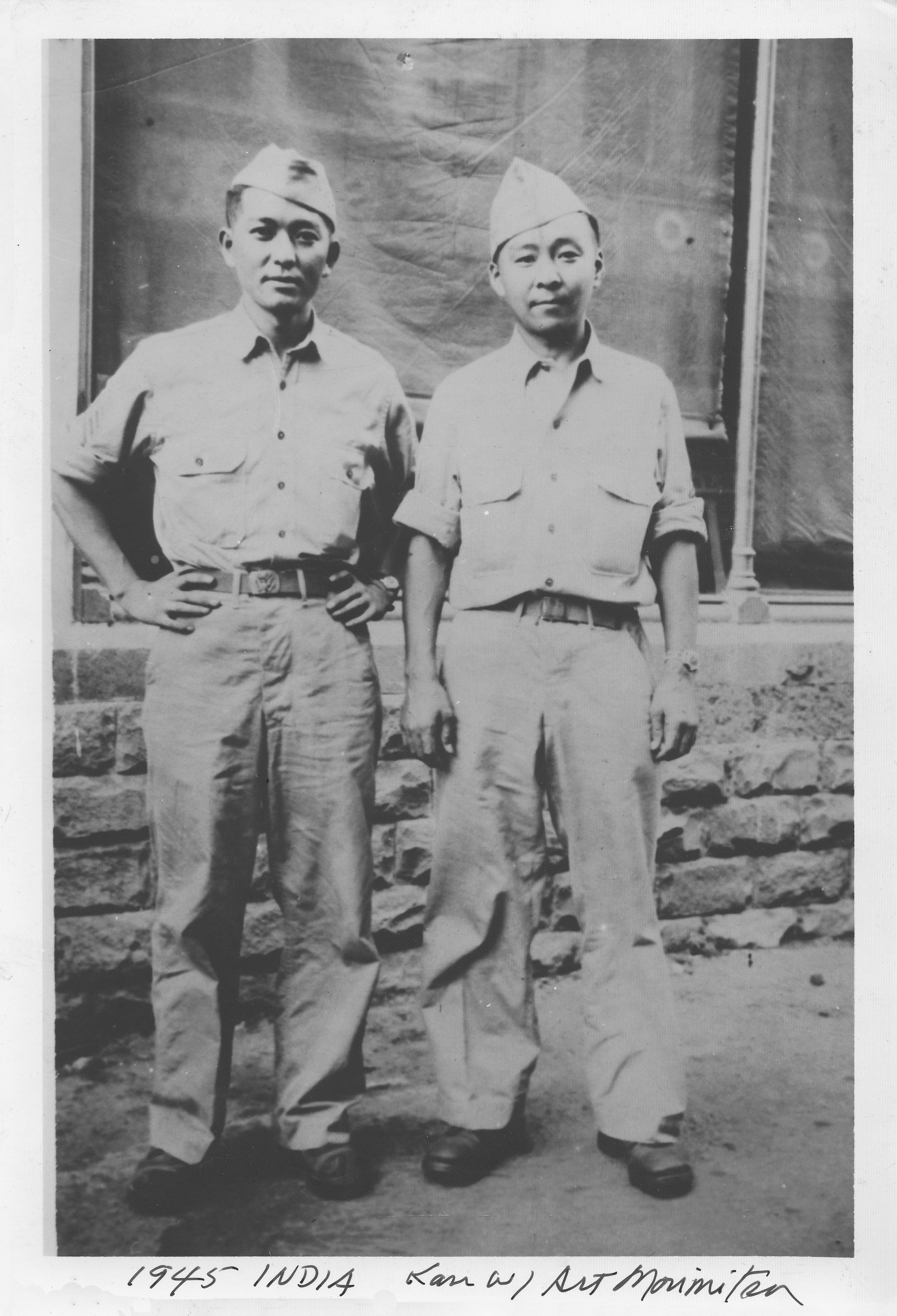
Kan, left, and his team leader Art Morimitsu were in charge of gathering intelligence.
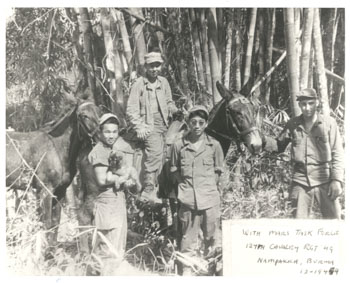
With Mars Task Force, 124th Cavalry Regiment, Namhpakka, Burma, December 1944
The MARS Task Force maneuvered over several hundred miles of mountain ranges and treacherous rivers. In addition to combat, the soldiers suffered through the “heat, rain, mud, jungle, and mosquitoes.”
Kan often volunteered for patrols in Burma. One time his patrol was surrounded by Japanese soldiers who called out, “Go left. Go left. They’re over there." Kan quickly translated these directions to his superiors, which led to the patrol’s safe escape.
Kan’s interrogations of Japanese soldiers also provided essential strategic intelligence. A critically injured enemy prisoner was to be killed, but Kan intervened and questioned him.
He discovered that enemy forces were only at a quarter of estimated strength. With this knowledge, the patrol charged ahead and Japanese troops were forced to retreat.
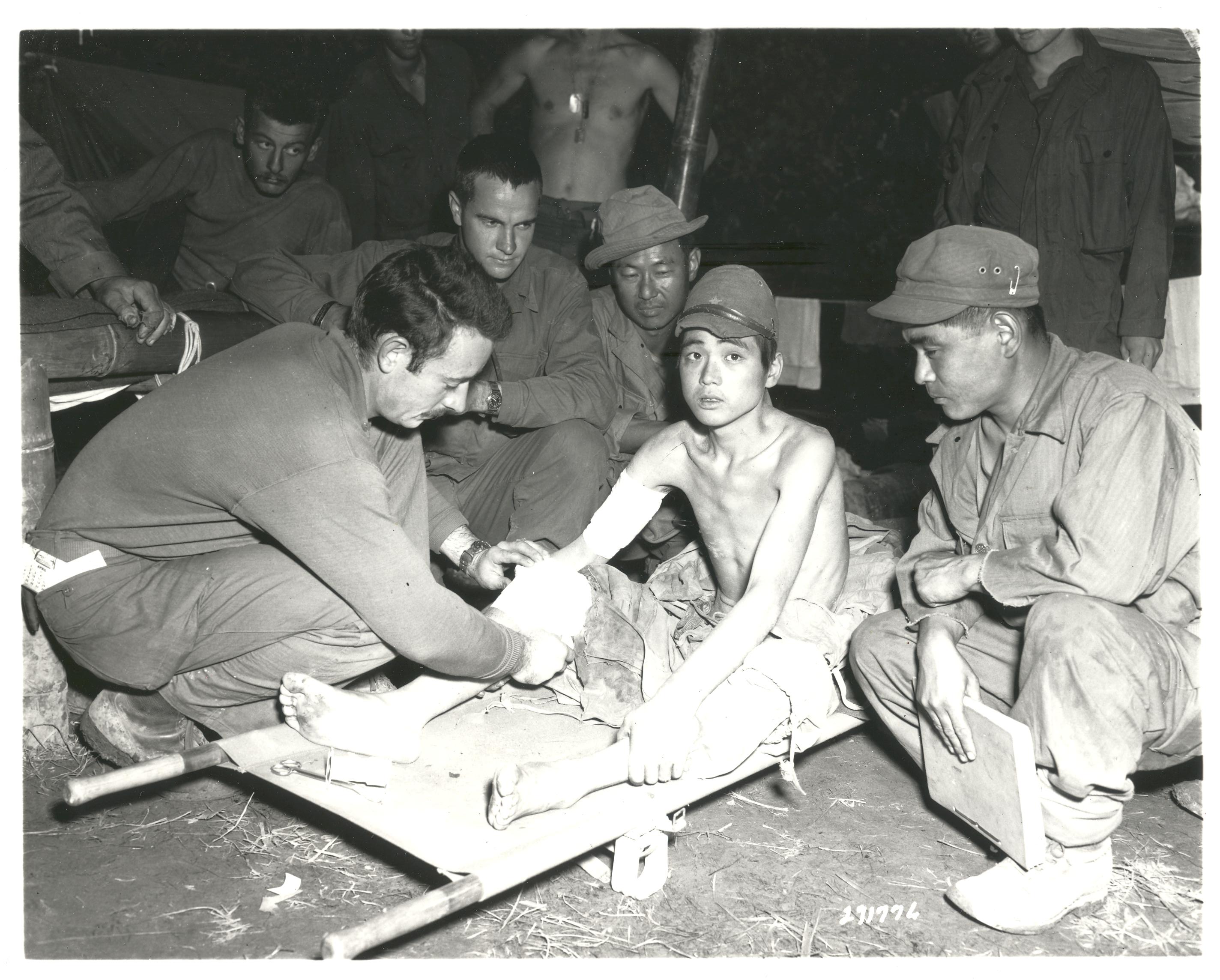
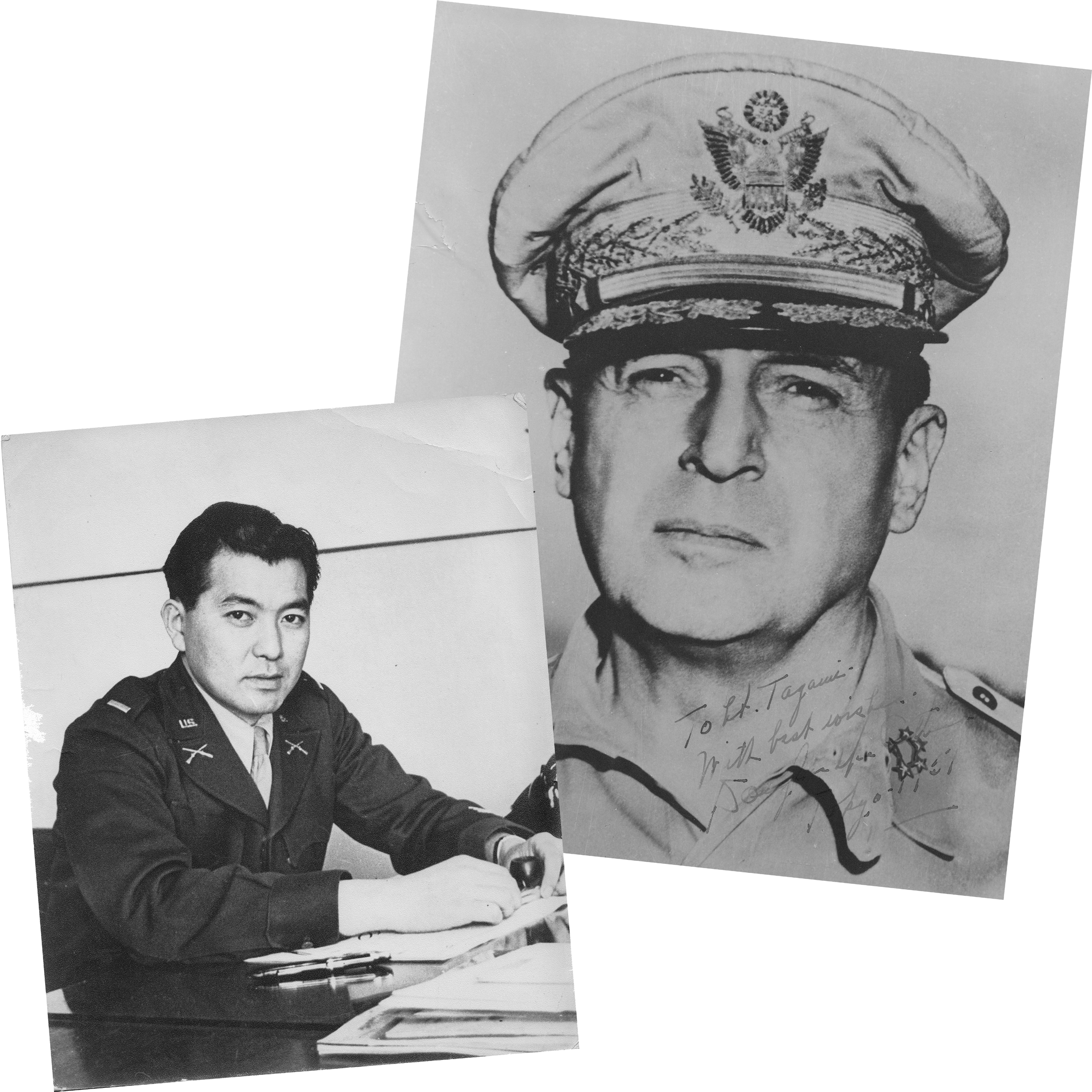
Left: Kan when he was MacArthur’s Interpreter-Aide, Right: A signed photograph of General MacArthur,
Occupation of Japan
After the war, in the fall of 1946, Kan’s life would change forever. He became Interpreter-Aide for General Douglas MacArthur, the Supreme Commander of the Allied Powers in Japan.
I tried to make sure that the words I interpreted were correct in spirit and tone as well as content. . . [MacArthur’s] views carried great weight, similar in gravity to those of the Emperor.|Kan Tagami
As MacArthur’s personal interpreter, Kan got a bird's-eye view of the Occupation of Japan. He met the nation’s top political and business leaders.
Called to deliver a message on a sensitive matter to the Emperor, Kan went to the Imperial Palace. There he became the only member of the Occupational Forces to be granted a private audience with Emperor Hirohito.
The emperor stated:
The Nisei are very important people to Japan. They are the bridge between the US and Japan.
As a result of conflict with President Truman, General MacArthur was relieved from his command in 1951.
Before he left his position, MacArthur promoted Kan to captain. Kan was then assigned to the Counterintelligence Corps in Baltimore.
Kan continued to serve in the US Army until his retirement in 1961. For his contributions in the field, he was inducted into the Military Intelligence Hall of Fame in 1996.
We learned the value of not being a harsh, gloating victor. |Major Kan Tagami
My father’s life reflected the ironies and contradictions of the Nisei: loyal citizens treated as strangers by their own country. He was impelled to fight abroad for rights that were not conferred at home. ... He left a better world for his children. |Kan’s son, John Tagami
Resources
To learn more about Kan Tagami, visit Resources.
Credits
Photographs courtesy of the Tagami family, Densho, and the US Army Center of Military History. The video interview was made possible by the Go for Broke National Education Center.
